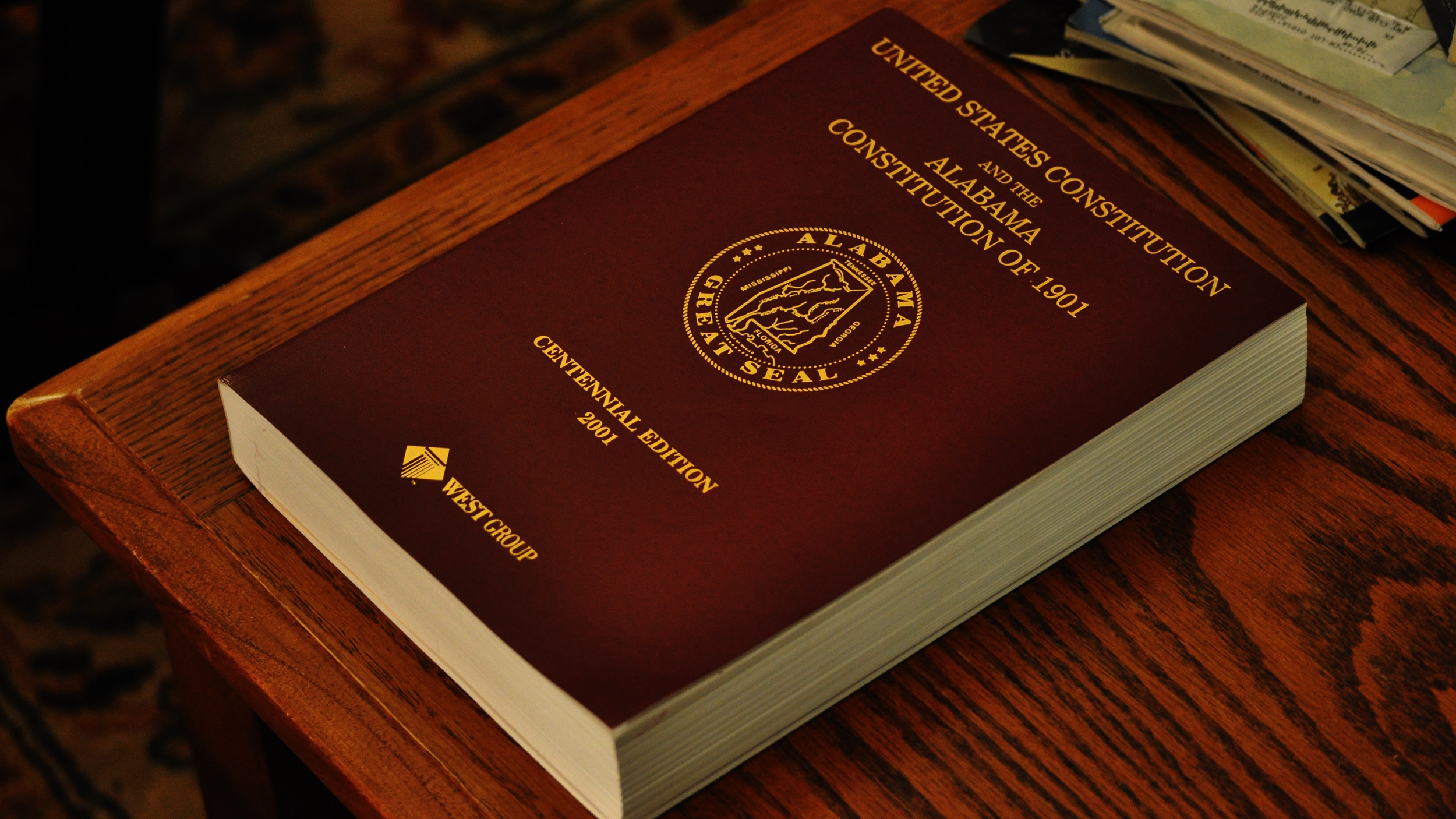There were six statewide amendments to the Alabama Constitution on the ballot on Election Day, and five of them passed easily. By far the most controversial of them, Amendment 2, which would have restructured the state’s judicial branch, was narrowly defeated.
According to unofficial results, 49.7 percent of voters voted yes, and 50.3 percent voted no. Amendment 2 was a rewrite of the state constitutional reforms championed by late Chief Justice Howell Heflin in 1973.
An Alabama Law Institute Committee composed of legislators, judges and lawyers met in secret away from the press and public over 19 months, conducting a comprehensive review of Article VI since Heflin’s revisions were approved in Amendment No. 328 in 1973.
The resulting Amendment 2 was one of the most controversial constitutional amendments brought forward by the Alabama Legislature since Gov. Bob Riley’s Amendment 1 in 2003, which would have raised taxes by more than $1 billion. That was voted down by the voters.
Conservatives including Chief Justice Tom Parker, former Chief Justice Roy Moore, Eagle Forum, the Alabama Constables Association, and other groups urged voters to reject the amendment.
Amendment 2 stripped the power of the Legislature to impeach a judge. Under current law, the Alabama House of Representatives can bring articles of impeachment against a sitting judge. If the House impeaches, the Senate sits in trial and decides whether the judge has acted improperly and is guilty of what the House has charged them with.
The Legislature has not actually impeached anyone in more than century, but Amendment 2 would have taken that constitutional power away from future Legislatures.
Moore, prior to the vote, said that stripping the Legislature of the power to discipline a judge for cause takes away a powerful check on the judiciary and violates the principle of checks and balances between the three branches of government. Moore also objected to giving more power to the unelected Judicial Inquiry Commission, which played a major role in his removal as chief justice in 2016.
Amendment 2 also stripped the chief justice of the important power to appoint his own administrative director of courts. The ADC is the second-in-command of the whole judicial branch of government and their appointment has been a constitutional power of the chief justice since 1973. Instead, Amendment 2 would have given that power to the eight associates justices of the Supreme Court.
Moore called that a “power grab” by the associate justices and would make the chief justice work with a director of the court not of his own choosing.
“Amendment 2 would give the ADC a long 10-year term and make it much more difficult to remove him or her, instead of serving at the discretion of the chief justice as they do now,” Parker, the current chief justice, said. “This strange scenario is like Nick Saban and Gus Malzahn having their assistant coaches selected for them by the athletic departments at Alabama and Auburn, and then being told they have to keep those assistant coaches for 10 years! Such a bizarre scheme would totally undermine the ability of the head coach to effectively lead the offense, defense, special teams and all departments of their program — and, if necessary, fire underperforming coaches.”
“Amendment 2 is really an anti-democratic and anti-Tom Parker amendment,” Foundation for Moral Law staff attorney Matt Clark said in a statement. “It is anti-democratic because it removes the people’s main check on the judicial branch, which is impeachment. Instead, it provides that only the Judicial Inquiry Commission, over which the people have no control, may remove a judge from office. It is also designed to strip Chief Justice Parker of his power as the administrative head of the judicial branch to choose his right-hand man for carrying out the judicial branch’s administrative role.”
The Alabama Constables Association strongly opposed Amendment 2, arguing that it would write the funding mechanism for their position completely out of the state constitution.
“Constables are not taxpayer-funded, they are largely voluntary Peace Officers,” said Jefferson County Constable Jonathan Barbee. “The fees they collect from their duties as Officers of the Courts allow them to support the expenses of the office such as vehicles, uniforms, and equipment. Amendment 2 also deletes the language protecting how Constables are paid by private court fees, leaving it in question for the appointed Administrator to decide.”
Tuesday’s vote by the people leaves the judicial portion of the Constitution like it is now.























































